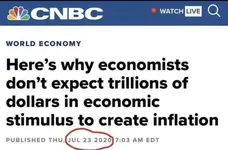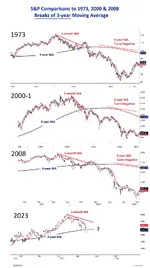You are using an out of date browser. It may not display this or other websites correctly.
You should upgrade or use an alternative browser.
You should upgrade or use an alternative browser.
Financial Crash (2022-25)
- Thread starter Cynllo
- Start date
We might get a mini dip buy here, but within 10 days we'll be breaking below 4k S&P. Maybe sooner. Then I think you might see a confluence of things, including higher yields, which will continue downward pressure through November.
Honestly, would anyone here in the west repent if God doesn't send economic turbulence? Everyone's so distracted and satisfied with what the world has to offer, and their day to day jobs keep them distracted with mundane routines of driving the same route every day and going home to their computers to ingest the news.
If Sleepy Joe is indeed in the situation room, it looks like we might get that big dip in the next 10 days.
Car loan delinquency at the highest level on record.
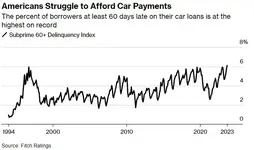
Home sales falling through at elevated rates.
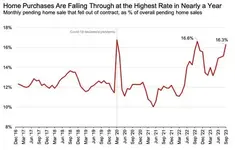
Goldman calling next year as the slowest year for home sales since the 90s - https://archive.ph/gKnie
The average monthly new mortgage payment is 52% higher than the average apartment rent. The last time the measure looked out of whack was before the 2008 housing crash. Even then, the premium peaked at 33% in the second quarter of 2006. - https://archive.ph/sxYwn
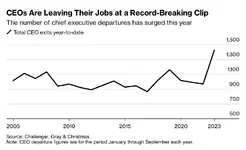

Home sales falling through at elevated rates.

Goldman calling next year as the slowest year for home sales since the 90s - https://archive.ph/gKnie
The average monthly new mortgage payment is 52% higher than the average apartment rent. The last time the measure looked out of whack was before the 2008 housing crash. Even then, the premium peaked at 33% in the second quarter of 2006. - https://archive.ph/sxYwn

If it doesn't come in the next couple of weeks, I'll stop mentioning dates, because it's clear that regardless, the degradation is here. That's also why we see all this geopolitical madness.
For this reason, I also see the current BTC spike as a head fake. We still have time, but not that much more.
For this reason, I also see the current BTC spike as a head fake. We still have time, but not that much more.
Monday is likely going to be a bloodbath. We have entered the phase we've all been waiting for, not that we are happy or wanted it, we just knew it would all be coming sooner or later.
It's going to 3200, at least. How quickly, I don't know, but likely by next June or so. But that's much longer than what I really think (which is more like within 3 months).
I'm going to take the contrarian position here and argue that the "they can print money longer than you can stay solvent" adage is applicable right now, and I don't think we'll be in recession for a little while still.
That being said, I am stacking cash and preparing for the worst. Interest rates dictate that "cash is trash" is less applicable now.
That being said, I am stacking cash and preparing for the worst. Interest rates dictate that "cash is trash" is less applicable now.
They also just seem to be able to declare reality and go with it. Just tell people the economy is strong and everyone follows what their TV says.I'm going to take the contrarian position here and argue that the "they can print money longer than you can stay solvent" adage is applicable right now, and I don't think we'll be in recession for a little while still.
That being said, I am stacking cash and preparing for the worst. Interest rates dictate that "cash is trash" is less applicable now.
They also just seem to be able to declare reality and go with it. Just tell people the economy is strong and everyone follows what their TV says.
I am somewhat on the fence, but lean towards a downturn next year. It is just a question of what they will do to paper things over. Maybe they will begin some new scheme, like printing billions or over a trillion and lending it at low to no interest to sure over the growing mountain of borderline delinquent debt.
But when it does happen, it is going to be very bad. Never has there been such an amount of inflated and unprofitable debtors. There are a lot of signals, like some above, that are now worse than they were at the peak of the GFC. What will it be like going into a downturn with those numbers. That's one reason why the Fed and its peers will be looking to do whatever they can to avert it.
Last edited:
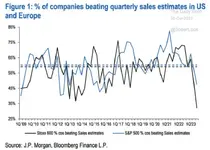
It's happening.
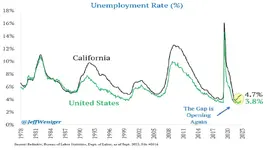
Office buildings in southern California. A healthcare operator in the Northeast. A bankrupt oil and gas company in the Atlanta suburbs.
These were among the assets that became the source of lending problems for regional banks in the third quarter as corporate borrowers and commercial real estate began to show more signs of strain.
In recent weeks many mid-sized financial institutions across the country reported that nonperforming loans, a measure that tracks borrowers that are behind on their payments, rose during the third quarter. They also disclosed mounting costs from unpaid debts written off as losses.
Of 18 regional banks analyzed by Yahoo Finance with assets ranging from $50 billion to $250 billion, 15 reported jumps in nonperforming loans when compared to the same year-ago period. The average rise was 80% more than the third quarter of 2022, and up 8% when compared to the second quarter of this year.
WSJ: https://archive.is/cIofJ
The Mortgage Market Is So Bad Lenders Want Ex-Employees to Give Back Their Bonuses
My mortgage guy believes the Fed is going to bring mortgage rates back down to around 5% within 12-18 months. He says that's the word they're putting out. He's expecting anyone that got a higher interest loan in the past year, or especially now, will be generating tons of refinances when that time comes. He's expecting a boom.View attachment 624
It's happening.
View attachment 625
WSJ: https://archive.is/cIofJ
The Mortgage Market Is So Bad Lenders Want Ex-Employees to Give Back Their Bonuses
I'm not so sure. I remember interest rates going high for 25 years from 1978 to 2003 or so. I think current rates could be the best we'll see for a long, long time. 8% is still lower than anything from that 25 years I just mentioned.
Of course, it's possibly my mortgage guy knows all of this, but he's pushing the idea that rates will come back down to make people think the current high rate will be temporary.
He could be right but he's still missing critical info to hype certain things/his business. The plan is to increase unemployment dramatically. Rates lower when people are out of jobs and credit is tight may be irrelevant. We shall see.My mortgage guy believes the Fed is going to bring mortgage rates back down to around 5% within 12-18 months. He says that's the word they're putting out. He's expecting anyone that got a higher interest loan in the past year, or especially now, will be generating tons of refinances when that time comes. He's expecting a boom.
I'm not so sure. I remember interest rates going high for 25 years from 1978 to 2003 or so. I think current rates could be the best we'll see for a long, long time. 8% is still lower than anything from that 25 years I just mentioned.
Of course, it's possibly my mortgage guy knows all of this, but he's pushing the idea that rates will come back down to make people think the current high rate will be temporary.
My mortgage guy believes the Fed is going to bring mortgage rates back down to around 5% within 12-18 months. He says that's the word they're putting out. He's expecting anyone that got a higher interest loan in the past year, or especially now, will be generating tons of refinances when that time comes. He's expecting a boom.
I'm not so sure. I remember interest rates going high for 25 years from 1978 to 2003 or so. I think current rates could be the best we'll see for a long, long time. 8% is still lower than anything from that 25 years I just mentioned.
Of course, it's possibly my mortgage guy knows all of this, but he's pushing the idea that rates will come back down to make people think the current high rate will be temporary.
Never ask a barber if you need new haircut. Similar parallel exists with real estate brokers or stockbrokers.
What I mean to say is: don’t ask your real estate advisor about interest rates.
Besides not even the Fed knows what it is going to do three weeks out
Interest payments on national debt had now reached almost 700K, almost the same as military budget. In the 70s, 80s, when rates remained high, there was no problem of huge government debt. Interest is so high now that they are borrowing a lot just to pay it, going down inflationary sprial. They can't really afford to keep the rates high for much longer, I think. There are 2 wars going on the periphery of American sphere of influence, this will cost, and I believe there will be more, so more expenses. Treasury bond buyers want higher rates because huge fast growing debt is risky, so the Fed will have to be the buyer of own bonds. Inflationary stuff anywhere you look.
Treasury bond buyers want higher rates because huge fast growing debt is risky, so the Fed will have to be the buyer of own bonds. Inflationary stuff anywhere you look.
Makes sense that the Fed will follow in Japan's footsteps.
BoJ owns more than half of JGBs:
'Target has posted seven consecutive quarters of declining sales of discretionary items, such as apparel and toys, in terms of both dollars and units. "But even in food and beverage categories the number of items they're buying, has been declining."'
To be fair Target is not a very well managed retailer so they could be ceding market share. Better to look at how Walmart and Costco are doing.Makes sense that the Fed will follow in Japan's footsteps.
BoJ owns more than half of JGBs:
'Target has posted seven consecutive quarters of declining sales of discretionary items, such as apparel and toys, in terms of both dollars and units. "But even in food and beverage categories the number of items they're buying, has been declining."'


